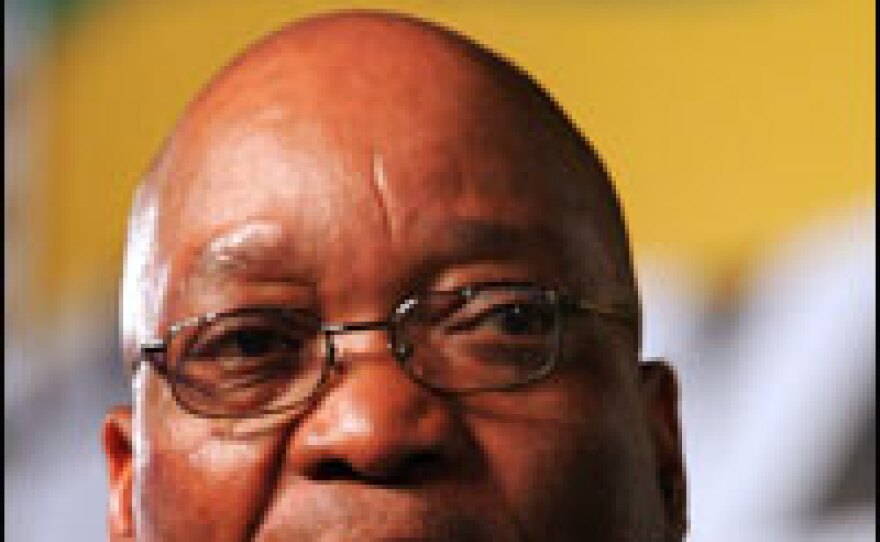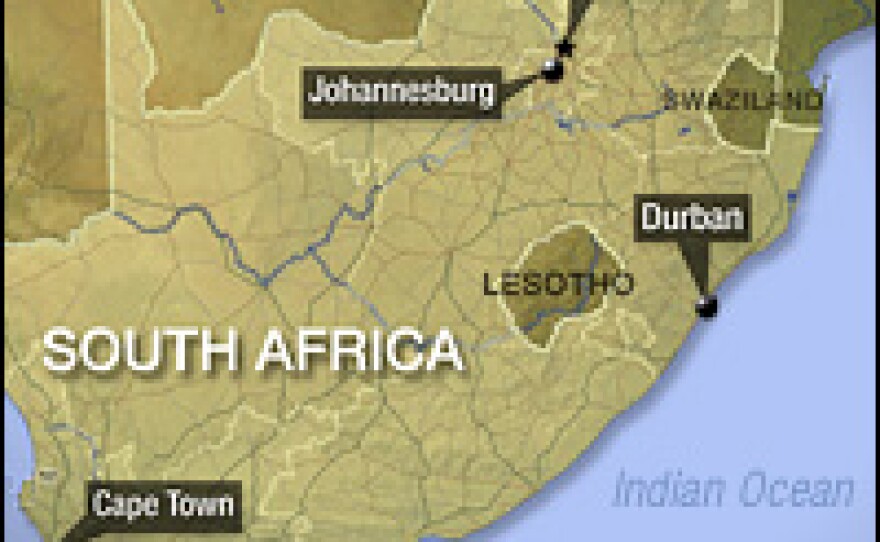

South Africa has one of the highest crime rates in the world. But recently, one of the country's most successful crime-busting units has become caught in a tangled web of internecine party politics.
The unit is called the Scorpions, and its motto is "Loved by the people, feared by the criminals, respected by peers." After fingering some of South Africa's most powerful people in corruption probes, its days may be numbered.
Results and Respect
The Scorpions, formally known as the Directorate of Special Operations, was established by South African President Thabo Mbeki in 1999 as a unit of the National Prosecuting Authority. Mbeki announced that he intended the Scorpions to be a special and well-equipped unit tasked with investigating national priority crime, such as corruption.
Taking cues from Scotland Yard and the FBI, the unit created a team that included prosecutors, investigators and analysts. It racked up an impressive record of convictions, far outpacing the police service.
Adriaan Basson, a crime reporter who has covered the unit, says that over the years the Scorpions got results and won public respect.
"They've caught big drug smugglers, diamond smugglers," he says. "They've infiltrated the drug scene in Joburg [Johannesburg] to a large extent."
Basson, an investigative reporter for the Johannesburg-based Mail & Guardian newspaper, recalls the acclaim they won within the system as well.
"Cases in which I sat, the judges commended them on the thorough work done and the speed of the investigations," Basson says.
Zuma and the Scorpions
Despite its successes, the unit ran into trouble when it began investigating leaders of Mbeki's party, the ruling African National Congress party.
In 2005, Jacob Zuma, who was then deputy president of South Africa, was charged in a Scorpion corruption investigation. The unit alleged that Zuma had abused his position to reap financial benefit from a 1999 arms procurement deal.
Zuma was ousted from his post by Mbeki. Though the charges were dismissed in 2006 due to lack of evidence, the contentious relationship between Zuma and the Scorpions continued.
In December, at the ANC conference in the town of Polokwane, Zuma wrested control of the ruling party from Mbeki. Zuma's win marked the first time that the president of the party and the president of the government were not one and the same. Zuma is now in line to succeed Mbeki as South Africa's leader in 2009.
In the South African system, elections are contested by parties, not candidates. The winning party names the president from within its ranks. The party then gives policy direction to the government.
Unit Disbanded
Shortly after Zuma was named president of the ANC, an official from the National Prosecuting Authority announced that enough evidence had been collected to reinstate corruption charges against Zuma. Mbeki has denied allegations he is using the unit for political ends.
Following the reinstatement of charges against Zuma, the ANC passed a resolution to disband the Scorpions. The plan now is to have their functions absorbed into the South African Police Service.
Siphiwe Nyanda, a top ANC official, says that what he perceives to be politically motivated Scorpion behavior is at the heart of the ANC's decision to disband them.
"Charging Jacob Zuma without sufficient evidence, and subsequently ... trying to influence the outcome of Polokwane by issuing statements about the imminent charging of Jacob Zuma — all these things, we think, are human rights violations," Nyanda says.
Most opposition politicians claim the effort to disband the Scorpions is politically motivated. Members of the Scorpions maintain they are just doing their job within the framework of the law. They have investigated many top ANC figures besides Zuma, including Jackie Selebi, a Mbeki ally and police commissioner who also is charged with corruption.
Attempt to Save the Scorpions
Public support for the Scorpions is still high. Johannesburg businessman Hugh Glenister is working through the court system in an effort to save the unit. He has also collected at least 45,000 signatures through a Web site created in support of the Scorpions. Glenister says that disbanding the crime unit is the beginning of a slippery slope.
"Once we've taken out the Scorpions, what next?" Glenister says. "The Scorpions is the last guardian of the public, really, between greedy politicians and the public."
Amid the turmoil, some Scorpions have begun leaving the unit. Some observers predict members will disband the unit themselves before any official move, leaving the future of their cases and investigations uncertain.
Copyright 2022 NPR. To see more, visit https://www.npr.org. 9(MDAzMjM2NDYzMDEyMzc1Njk5NjAxNzY3OQ001))






